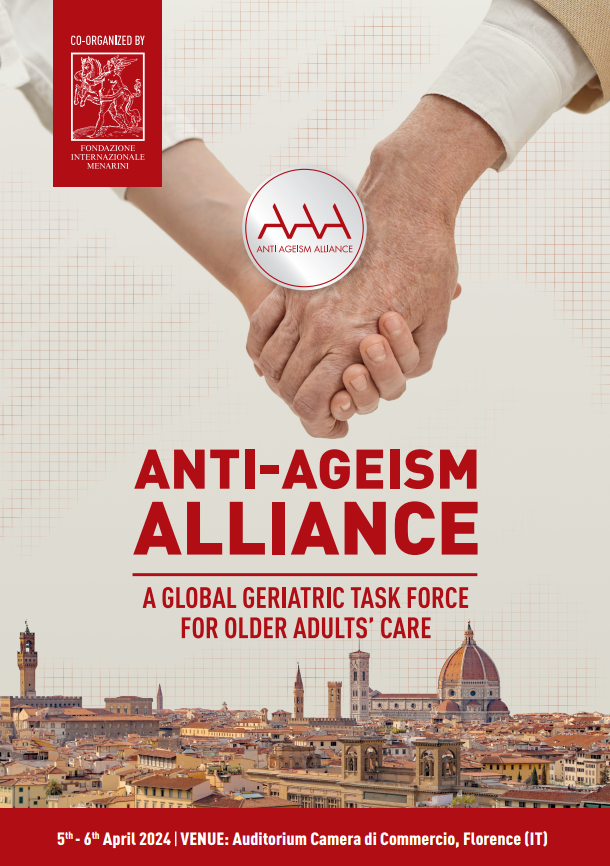
Rationale
Ageism, as defined by Robert Butler in 1969, is an attitude that discriminates, separates, stigmatizes, or otherwise disadvantages older adults on the basis of chronologic age. Ageism n healthcare is particularly common worldwide and well described as a social phenomenon affecting judgment about and treatment of older adults, potentially leading to both under - and over-diagnosis and -treatment. Thus, representing a major determinant of low quality of care in older adults. Moreover, Ageism may result in higher health care costs, social isolation, and low quality of life. Ageism mainly derives from a limited knowledge of aging process, geriatric medicine and the gerontological approach to older patients’ care. The aim of this conference will be to discuss and disseminate the principles of geriatric medicine with the final purpose to promote the implementation of the gerontological approach against Ageism. The conference will be aimed also to produce a final document: the “Florence Chart against Ageism”
During the meeting, the most influential scientists in geriatric and gerontological medicine will present their research, in the presence of Presidents of the main World geriatric societies. Other professionals involved in geriatric care against ageism will also participate (World Health Organization, United Nation, Ethicist, Patient’s associations)
Prof. Andrea Ungar